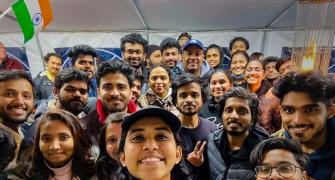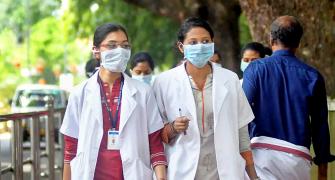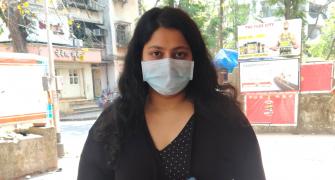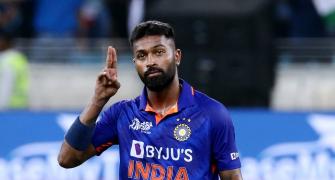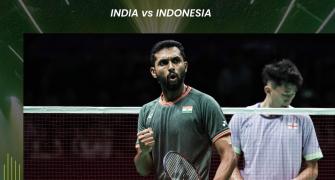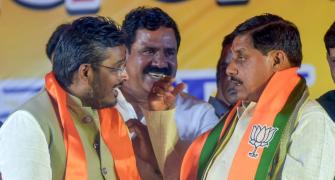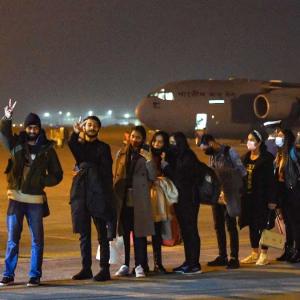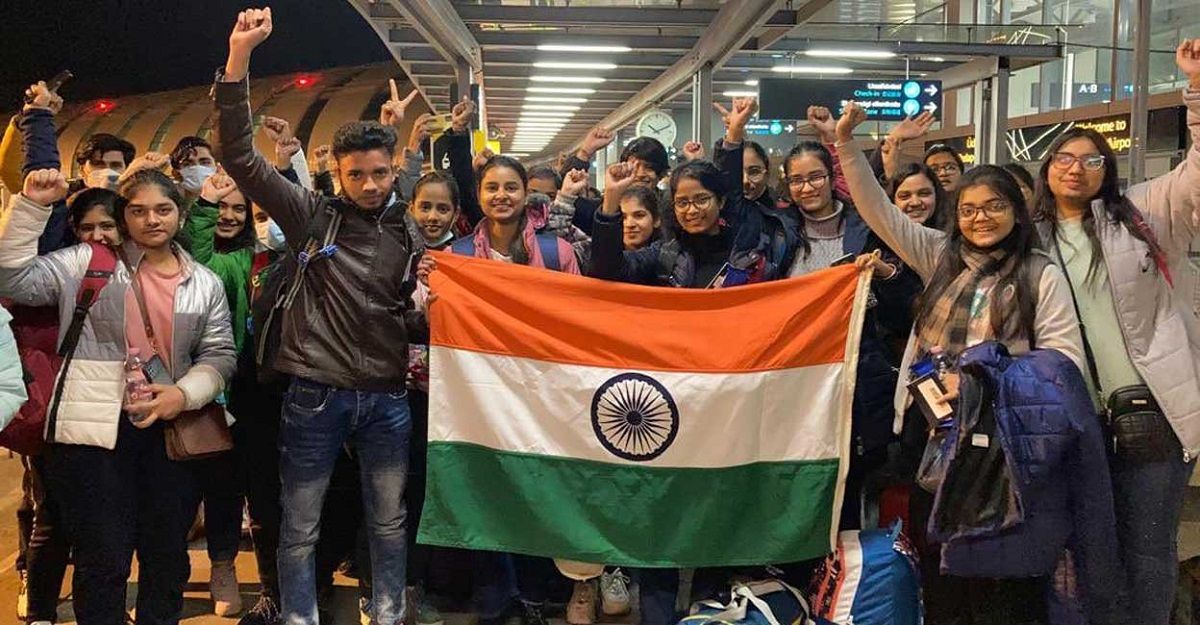About half of the students, who have been affected by the war, have taken admission to universities in other countries.

Nearly half of the 23,515 students who were studying in Ukraine until Russia attacked it in February 2022 have transferred to universities in other countries such as Russia, Georgia, Uzbekistan, Kazakhstan, and Kyrgyzstan, according to people aware of the development.
Moreover, about 10 per cent of the affected Indian students will have returned to that country by April 2023, according to data collected by the Indian embassy in Kyiv.
Approximately one-fourth of these students are taking online classes in India, while the rest have either passed or dropped out in the meantime.
Students, primarily medical degree aspirants from India in Ukraine, have gone through the past year-and-a-half in a haze of uncertainty.
The Indian embassy's data states that 2,300 students have managed to return to the war-torn country.
A Bengaluru-based education consultant said that about half of the students, who have been affected by the war, have taken admission to universities in other countries to date.
Gujarat-based Mohit Parekh is one such student who has taken a transfer from Bukovinian State Medical University (BSMU) in Chernivtsi, Ukraine, to Samarkand State Medical University (SSMU) in Samarkand, Uzbekistan.
"After returning from Ukraine early last year, I completed my fifth semester in online mode. In September 2022, I took a transfer from BSMU to SSMU since medical education can be done in physical mode only," Parekh told Business Standard.
Parekh was brought back to India on one of the 90 repatriation flights that were operated by the Indian Air Force and private airlines under the central government's Operation Ganga, just after the war began.
R B Gupta, president of the Parents' Association of Ukraine MBBS Students, said that 8,000-10,000 students have transferred to universities in other countries, such as Russia, Georgia, Uzbekistan, Kazakhstan, and Kyrgyzstan, which are not a warfield.
About 2,300 students have returned to Ukraine, and 4,000-5,000 students (mostly final-year students) have stayed back in India and are studying online, Gupta added.
At least 3,000-4,000 students have completed their education since the war broke out.
Several students who went back to Ukraine have travelled through the Romania, Moldova, and Poland routes. This route was open until February this year; students would fly to one of these countries and eventually travel by road to Ukraine.
However, governments stopped issuing visas soon after to avoid illegal immigration and also deter students from going back to a war zone.
An education consultant, who has been representative of various Ukrainian universities in India, said that two sets of medical students have stayed back in India: Students in the fifth and final (sixth) year of education who do not see any benefit in taking a transfer; and students between the second and fourth year finding the transfer process to be expensive and tedious.
"Certain universities in Ukraine have asked the students to pay the full year's fee if they want to get their transcripts (authorised student records). These universities are also asking students to either come over or send an authorised representative to take their transcripts.
Currently, there are no direct flights to Ukraine, and travel from neighbouring countries to Ukraine has become difficult for Indians in the past four/five months," said the consultant.
Ukraine has a system of two exams: KROK-1 (at the end of three years of studying) and KROK-2 at the end of six years to get a medical degree. This is an offline exam.
However, for students affected by the war, India is holding KROK exams this year in June and July.
Shivangi Singh, a medical student, who had taken admission at a Ukrainian university, has chosen to shift to Germany and appear for her KROK exams from there as it is safer.
"Germany is helping us to complete our education from here, and it's safer here too," she told Business Standard.
Students who study medicine in another country have to clear a screening test (conducted by the National Board of Examination) called the Foreign Medical Graduate Exam (FMGE) to qualify for practice in India.
After COVID-19 and the Russia-Ukraine war forced students to study online, India has said that students who clear the FMGE will have to go for a two-year internship here to compensate for the loss of practical experience during their degree course.
Gupta reasoned that this is the reason why many final-year students have chosen to stay back and study online from India, as they have already been mandated to go for a two-year internship.
Interestingly, around 15-20 per cent of students only qualify for the FMGE, and the remaining is left making several attempts or giving up on their dream to practice medicine.
Gupta said that in November 2021, the Indian government said that students should try to obtain a licence to practice medicine from the country they obtained the degree from. This way, they don't waste years studying medicine.
Parekh said that the cost and quality of medical education in Uzbekistan are about the same as those in Ukraine. This is the reason why the number of Indian students at SSMU has jumped in the past 16 months.
"Before the war, the number of Indian students here (at SSMU) was 150-200. Now, it stands at about 800. This includes new students as well as students who have transferred from Ukrainian universities," observed Parekh.
Various first-year students who returned from Ukraine have dropped out and joined other courses in the country, he added.
About 100,000 students go abroad to study medicine every year, mostly to countries in the Caribbean, the Commonwealth of Independent States, the European Union, and China.
Gupta said that demand for medical degrees from China has declined over the years, thanks to tension between the two countries.
A degree from Ukraine and other neighbouring countries costs Rs 25 lakh-Rs 30 lakh (Rs 2.5 million to Rs 3 million), against Rs 60 lakh to Rs 1 crore (Rs 6 million to Rs 10 million) and above in India if one gets admission to a private college.

Feature Presentation: Ashish Narsale/Rediff.com


